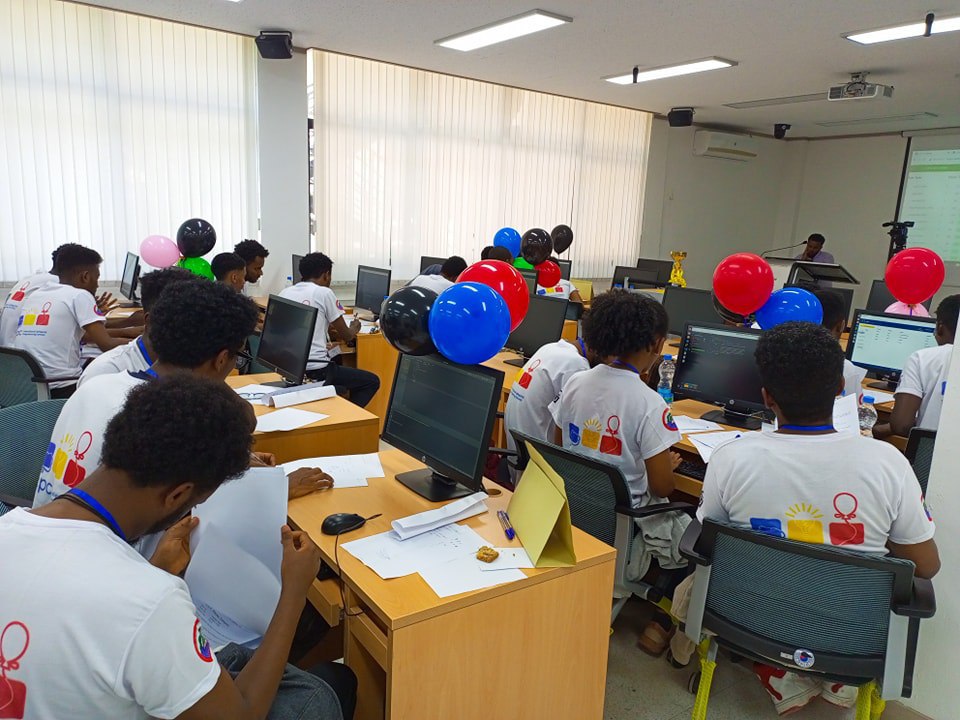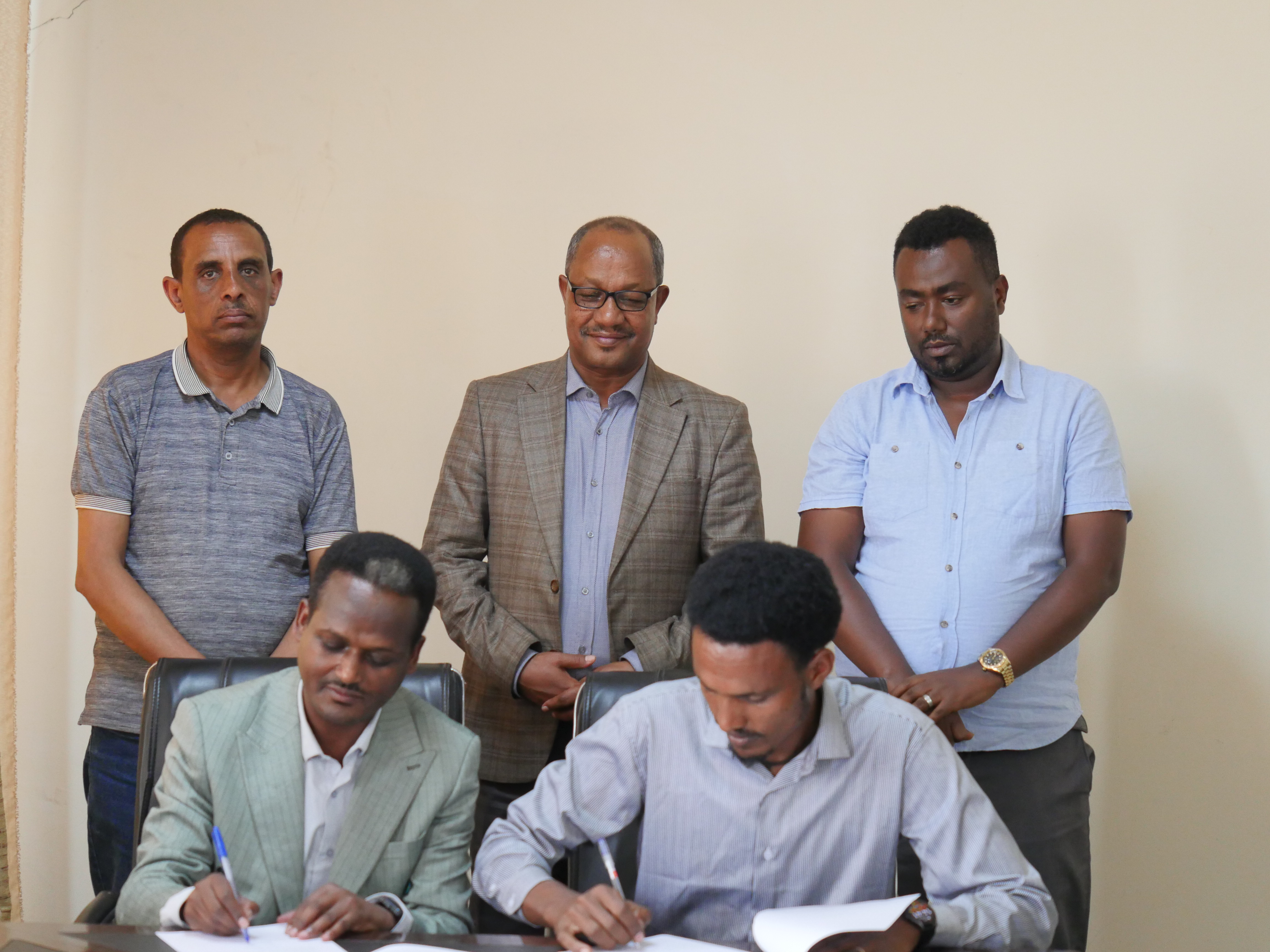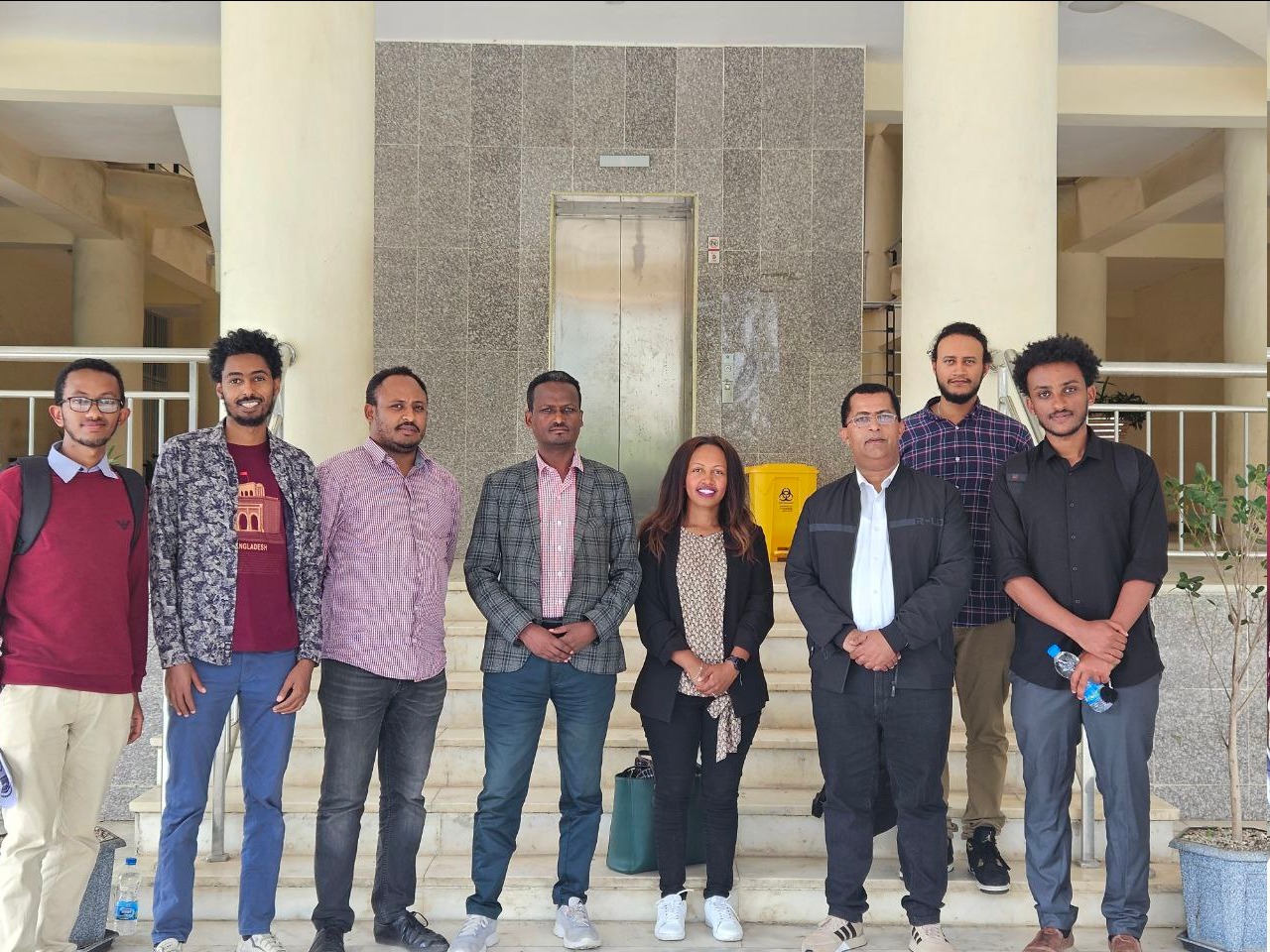Article Index
📡 Department of Electronics and Communication Engineering
Introduction
"Shaping the Future of Connectivity and Innovation"
The Department of Electronics and Communication Engineering (ECE) at ASTU is dedicated to producing highly qualified, competent, and socially responsible professionals. The program integrates both Electronics and Communication fields to prepare graduates for careers in design, implementation, testing, operation, and maintenance of modern systems ranging from microelectronics to global communication networks. Electronics and Communication Engineering is at the heart of today’s digital revolution. Our program equips students with versatile skills, forward-looking knowledge, and the innovative mindset needed to drive Ethiopia’s technological growth and meet global challenges.
Background of the Program
The Electronics and Communication Engineering (ECE) program is one of the four programs within the College of Electrical Engineering and Computing at Adama Science and Technology University (ASTU). The College was formed when the former School of Engineering and Information Technologies was restructured into three separate colleges. This reorganization took place after the institution was renamed Adama Science and Technology University by the Council of Ministers in May 2011, and its governance was shifted from the Ministry of Education (MoE) to the Ministry of Science and Technology (MoST). The change aimed to strengthen ASTU’s role as Ethiopia’s premier Center of Excellence in Science and Technology.
The origins of the current ECE program can be traced back to the Electrical/Electronic Technology Program at the former Nazareth Technical College (NTC), established in 1993. Over time, the program evolved through several academic transformations—progressing from its early form at NTC to the Electrical Engineering degree program, later to the Electrical and Computer Engineering program, and finally adopting its current name as the Electronics and Communication Engineering program under ASTU’s new direction.
In line with ASTU’s initiative to implement outcome-based education, all programs revised their curricula in accordance with ABET accreditation standards. The ECE program formed a curriculum committee to lead this revision, and the updated curriculum was officially approved in March 2021. Since then, notable accomplishments include defining and publishing Program Educational Objectives (PEOs), adapting and publishing Student Outcomes (SOs), mapping ASTU’s mission to PEOs, aligning PEOs with SOs, and linking SOs to Course Learning Outcomes (CLOs). Further achievements involve the preparation of detailed course syllabus, engagement with an Industry Advisory Panel (IAP), identification of human and physical resources, compilation of course portfolios, and the evaluation of CLOs and interim SOs.
Rationale of the Program
1. Dynamic and Evolving Field
Electronics and Communication Engineering is a highly dynamic discipline. Rapid technological advancement requires academic curricula to be regularly updated to remain relevant and competitive. Continuous review ensures that our teaching reflects the latest global innovations.
2. National Relevance
Ethiopia, like many developing nations, has traditionally been a consumer of electronics and communication technologies. The growing demand for skilled professionals in this area makes it essential to prepare graduates who can not only operate and maintain systems but also contribute to design, development, and innovation.
3. Broad-Based Undergraduate Training
The undergraduate program is intentionally broad, covering major areas of electronics and communication. This approach provides graduates with flexibility and versatility, enabling them to succeed in diverse employment sectors.
4. Preparing for the Future
To address the country’s future needs, the program strengthens graduates’ competencies in:
- Wireless and Mobile Communication Systems
- Embedded Systems and Internet of Things (IoT)
- Digital Signal Processing
- Semiconductor and VLSI Technologies
- Satellite and Broadband Communication
This ensures graduates are equipped not just for today’s job market, but also for emerging technological landscapes.
5. Our Commitment
The revised curriculum balances a strong foundation with forward-looking content. Graduates of the Electronics and Communication Engineering program will be:
- Competent professionals meeting national workforce demands.
- Innovative thinkers able to adapt to fast-changing technologies.
- Future leaders contributing to Ethiopia’s sustainable development through advanced engineering solutions.
Key Features of the Program
- 📡 Comprehensive training in communication systems
- 💻 Hands-on learning in embedded systems and IoT
- 🎶 Strong foundation in digital signal processing
- 🔬 Exposure to semiconductor and VLSI technologies
- 🛰️ Practical experience in satellite and broadband systems
- 🔧 Well-equipped laboratories and research opportunities
Call to Action
Are you ready to be part of the next generation of innovators shaping the future of connectivity?
- 📘 Download Program Curriculum
- 📅 View Admission Requirements
- ✉️ Contact Program Office
Program Educational Objectives (PEOs)
Graduates of the program are expected to:
- PEO 1: Build a strong foundation in mathematics, science, and engineering to deliver efficient solutions.
- PEO 2: Become ethically responsible and technically skilled engineers, capable of leadership in industry or academia.
- PEO 3: Contribute to sustainable development of ECE industries and society.
- PEO 4: Engage in innovative, research-oriented problem-solving to support national socio-economic growth.
Student Outcomes (SOs)
Upon graduation, students will be able to:
- SO 1: Solve complex engineering problems using principles of science and engineering.
- SO 2: Apply engineering design with awareness of health, safety, environment, and socio-economic factors.
- SO 3: Communicate effectively with diverse audiences.
- SO 4: Demonstrate professional and ethical responsibility.
- SO 5: Function effectively in teams, showing leadership and collaboration.
- SO 6: Conduct experiments, analyze data, and draw valid conclusions.
- SO 7: Engage in lifelong learning and apply new knowledge when needed.
Program Structure and Curriculum
- Degree Awarded: B.Sc. in Electronics and Communication Engineering
- Duration: 5 years (10 semesters, with two summer semesters for internships)
- Total Credits: 190 Cr. Hr.
- General Requirements ............................... 29 Cr. Hr.
- Basic Mandatory Courses ............................ 49 Cr. Hr.
- Major Mandatory ...................................... 67 Cr. Hr.
- Industrial Internship I and II ......................... 6 Cr. Hr.
- Major Electives ........................................ 36 Cr. Hr.
- Free Elective ............................................3 Cr. Hr.
The curriculum is outcome-based, aligned with ABET standards, and regularly revised to ensure global competitiveness.
Admission Requirements for Undergraduate program
- Completion of preparatory program.
- Required pass mark in the Ethiopian Higher Education Entrance Examination (EHEE) or equivalent foreign qualification.
- Must pass ASTU entrance exam
- Placement based on ASTU Senate admission and placement criteria.
- For continuing education, requirements follow the Institute of Continuing and Distance Education guidelines.
Facilities and Laboratories
ECE Department is equipped with modern learning and research facilities, including:
- 3 Computer Laboratories
- Electronics Laboratory
- Communication Systems Laboratory
- Digital Logic Design Laboratory
- VLSI Design Laboratory
- Microprocessing & Interfacing Laboratory
- Telecommunication & Switching Laboratory
- Antenna and Radio Wave Propagation Laboratory
- Microwave Devices & Circuits Laboratory
Staff Profile
- 2 Associate Professors
- 3 Assistant Professors
- 21 Lecturers
- 16 Research Assistants (Senior & Junior)
- 1 Administrative staff
Total: 43 staff members.
Career Opportunities
Graduates can work in:
- Telecommunications and ICT industries (e.g., Ethio Telecom, private ICT firms).
- Broadcasting and media technology.
- Electronics manufacturing and design.
- Research institutions and higher education.
- Public and private sector organizations requiring ECE expertise.
Contact Information
- Mr. Gemechu Dengia (MSc)
Head, Department of Electronics and Communication Engineering
Mobile: +251917039172
Email: This email address is being protected from spambots. You need JavaScript enabled to view it.
Adama Science and Technology University (ASTU)
College of Electrical Engineering and Computing
📍 Adama, Ethiopia
- Mr. Kehali Anteneh (MSc)
Deputy Head, Department of Electronics and Communication Engineering
Mobile: +251912637799
Email: This email address is being protected from spambots. You need JavaScript enabled to view it.
Adama Science and Technology University (ASTU)
College of Electrical Engineering and Computing
📍 Adama, Ethiopia










